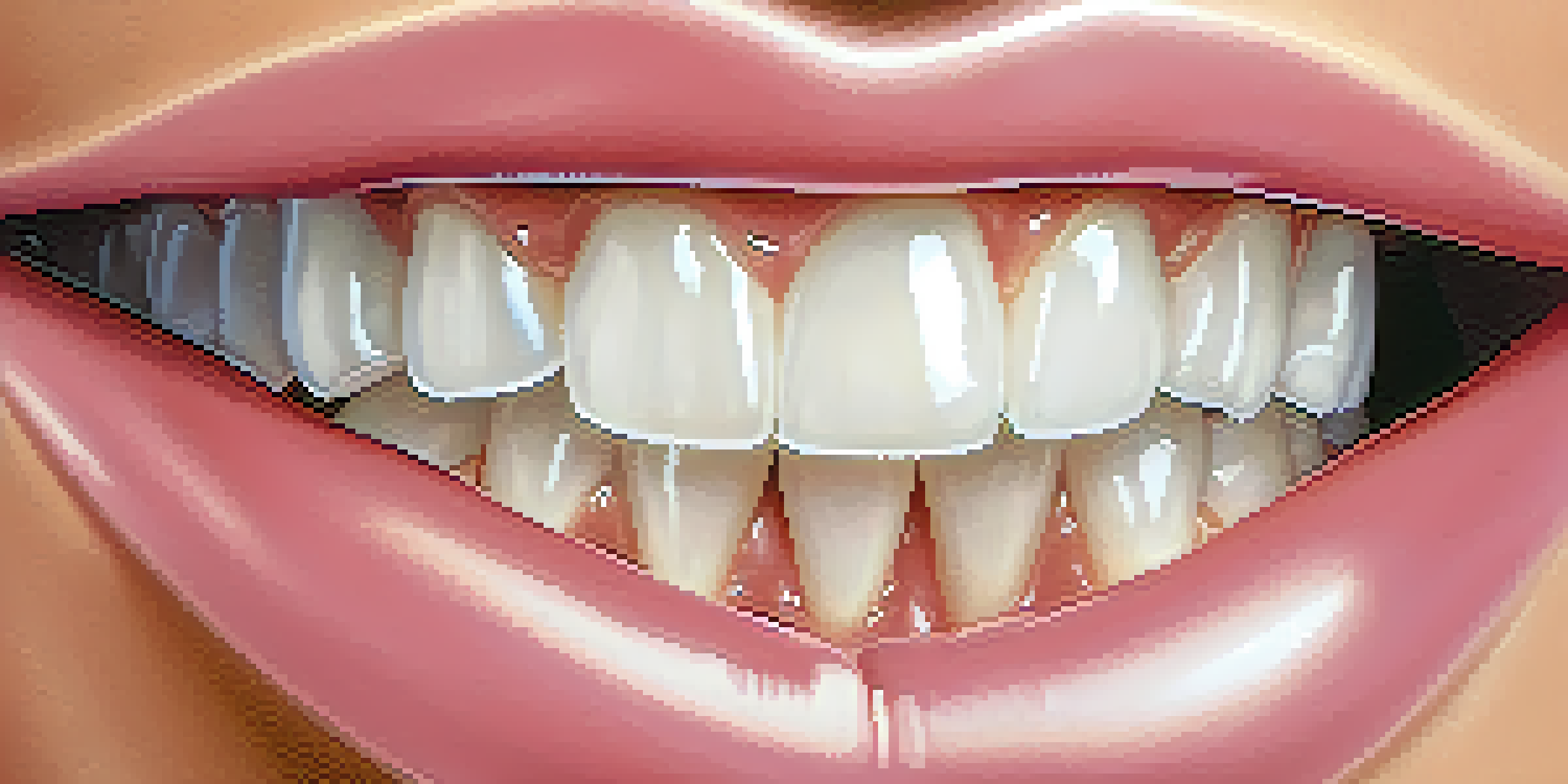Understanding the Impact of Tobacco on Oral Health

The Link Between Tobacco and Oral Health Issues
Tobacco use is a significant factor in various oral health problems. It can lead to gum disease, tooth decay, and even oral cancers. Understanding how tobacco affects your mouth is crucial for maintaining good dental hygiene.
Tobacco kills and harms nearly every organ in the body, including the mouth, which can lead to serious oral health issues.
When tobacco is consumed, it introduces harmful chemicals that can damage the soft tissues in your mouth. These chemicals compromise the immune system, making it harder for your body to fend off infections. This weakened defense can lead to serious issues like periodontitis, which is a severe form of gum disease.
Moreover, oral health can reflect overall health; thus, the impact of tobacco isn't limited to the mouth. Conditions like heart disease and diabetes can be exacerbated by poor oral health, creating a vicious cycle that can be difficult to break.
How Tobacco Affects Gums and Teeth
Tobacco can wreak havoc on your gums, leading to inflammation and recession. When the gums pull away from the teeth, it creates pockets that can trap bacteria, resulting in infections. This is particularly concerning because it can lead to tooth loss over time.

In addition to gum damage, tobacco can cause teeth to become discolored and stained. This happens because the tar and nicotine in tobacco products can cling to enamel, the outer layer of your teeth. The result? A dull and unhealthy smile that can impact your confidence.
Tobacco Damages Oral Health
Tobacco use significantly increases the risk of gum disease, tooth decay, and oral cancers, highlighting its detrimental effects on oral health.
Furthermore, tobacco users are more likely to experience bad breath, often referred to as 'smoker's breath.' This persistent issue can be embarrassing and is a noticeable sign of the ongoing damage tobacco does to your oral health.
Oral Cancer: A Serious Risk of Tobacco Use
One of the most alarming consequences of tobacco use is the increased risk of oral cancer. Studies show that smokers are six times more likely to develop oral cancers than non-smokers. This grim statistic underlines the importance of understanding the risks associated with tobacco.
Quitting smoking is the best thing you can do for your oral health, and your overall health.
Oral cancer can affect any part of the mouth, including the lips, tongue, and throat. Symptoms may include persistent sores, lumps, or difficulty swallowing, but early stages can often go unnoticed. Regular dental check-ups are essential for early detection and intervention.
If you're a tobacco user, it's crucial to be aware of the signs and symptoms of oral cancer. Staying vigilant and consulting with healthcare providers can lead to earlier treatment and better outcomes.
Tobacco's Effect on Oral Hygiene Practices
Using tobacco can significantly hinder your oral hygiene efforts. Smokers and users of smokeless tobacco may find that their mouths are more resistant to healing, making it harder to recover from dental procedures or even simple cleanings. This can lead to a cycle of poor oral health.
Moreover, tobacco can alter your taste buds, diminishing your ability to enjoy food and even affecting your motivation to maintain a healthy diet. Poor nutrition, in turn, can impact oral health, creating another layer of complexity to the issue.
Quitting Tobacco Improves Health
Cessation of tobacco not only promotes healing of gum tissues but also enhances overall oral hygiene and well-being.
In essence, tobacco use can create a barrier to effective oral hygiene practices. The longer someone uses tobacco, the more challenging it becomes to reverse its damaging effects on the mouth.
The Role of Lifestyle Changes in Oral Health
Quitting tobacco can lead to significant improvements in your oral health. After cessation, your body begins to heal, and gum tissues can regenerate. This regeneration can reduce inflammation and improve overall gum health.
Additionally, making positive lifestyle changes, such as improving your diet and practicing good oral hygiene, can further enhance recovery. Incorporating more fruits and vegetables can provide essential nutrients that support healing and strengthen your immune system.
Ultimately, the journey to better oral health starts with small steps. Ditching tobacco is one of the most impactful changes you can make for your mouth and your overall well-being.
Educating Others About Tobacco and Oral Health
Raising awareness about the impacts of tobacco on oral health is vital for encouraging others to make informed decisions. Sharing information with friends, family, and social circles can create a more supportive environment for those trying to quit.
Consider hosting informational sessions or distributing educational materials at community centers or schools. Providing resources can help individuals understand the risks and encourage them to prioritize their oral health.
Education is Key to Awareness
Raising awareness about the risks of tobacco on oral health is essential for encouraging healthier choices and supporting those who wish to quit.
Education is a powerful tool. By spreading awareness, we can help reduce tobacco use and its associated oral health problems within our communities.
Resources for Quitting Tobacco and Improving Oral Health
If you're looking to quit tobacco, numerous resources are available to support your journey. Programs like the American Smokers' Quitline offer guidance and encouragement to help you take that first step toward a tobacco-free life.
Additionally, engaging with your dentist or oral health provider can provide personalized strategies for quitting and improving your oral hygiene. They can recommend products and techniques tailored to your needs, helping you navigate this challenging process.

Remember, quitting is not just about stopping tobacco use; it's also about reclaiming your oral health and overall well-being. With the right support and resources, you can make lasting changes that benefit your mouth and body.